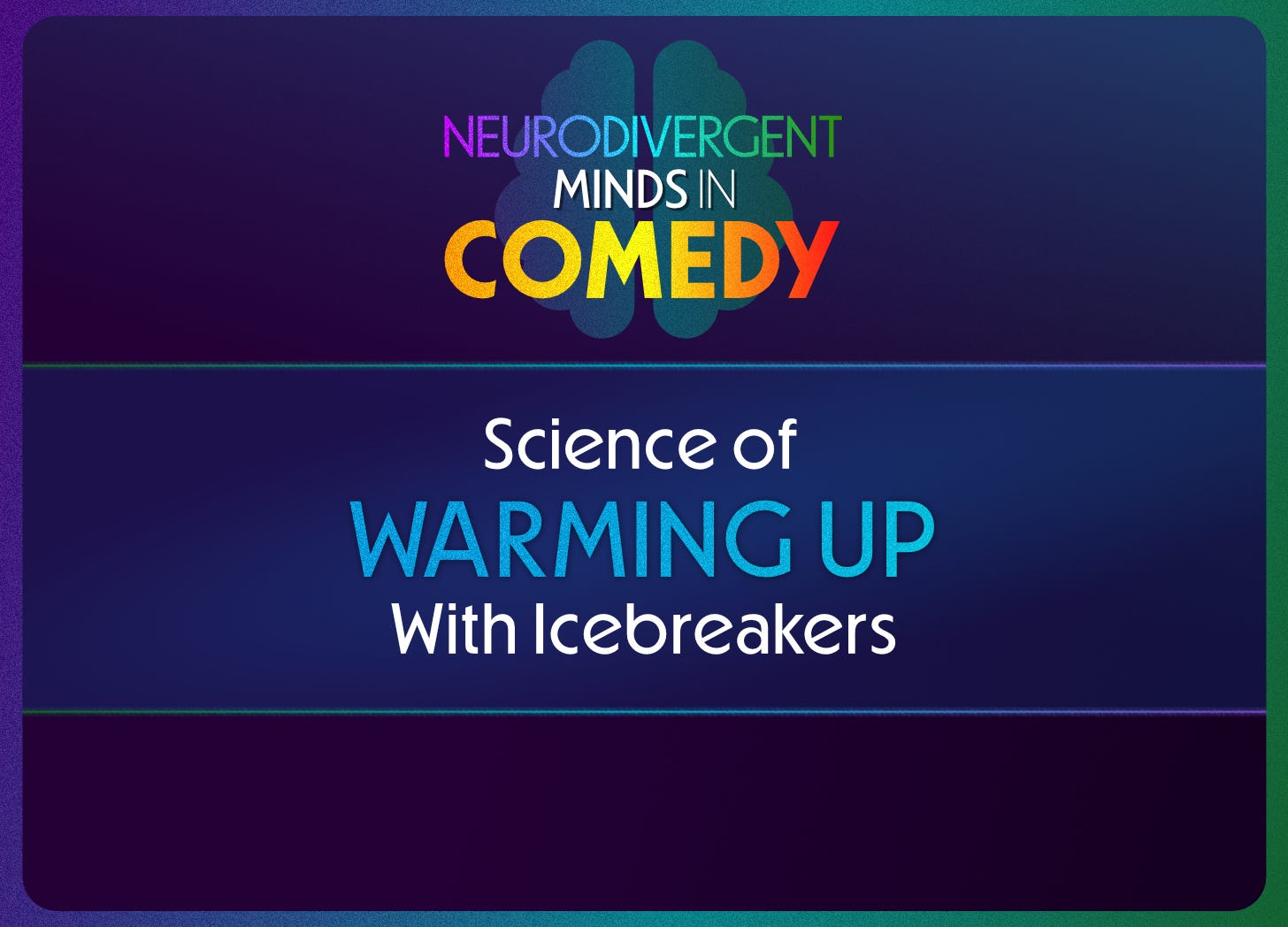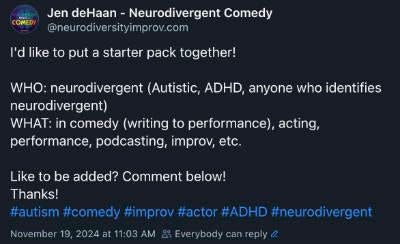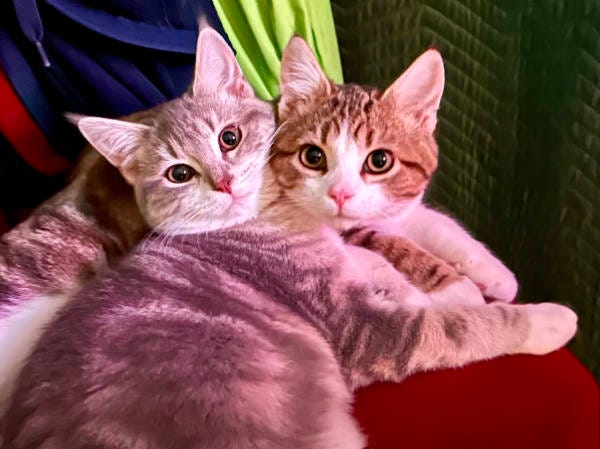Science supports group games and icebreakers, too
We love them or hate them, but even studies show they can make spaces more creative and beneficial for most. Here are a few more ideas to adjust these games to better support diverse neurotypes.
Greetings neurodivergent minds and our allies! Here is a newsletter where I’ll talk a little bit more about a recent topic - icebreakers. They can be controversial in diverse groups, with many people disliking - or getting all freeze or flight about - the idea of jumping right into personal shares.
We don’t need to intimidate our group settings. Maybe there’s a better way to approach these activities?
Science supports the benefits of these activities for creativity and growth in our acting spaces. They can be especially important if we’re about to do vulnerable scenes with people we don’t know well! So how do we improve icebreaker prompts and games to better support diverse neurotypes?
I look a bit more into what the studies say, and some recommendations from those in the field and share some brief notes this week.
In this Newsletter:
Icebreakers in more detail, according to behavioural science
Connect with this site (me) on Bluesky
Lend your voice to a future newsletter?
Neurodivergent Minds in Comedy
Icebreakers are common in comedy classes, teams, and many other settings. They are often unpopular amongst neurodivergent performers, and of course for many “typical” neurotypes too. The activity forces us to share, and when doing so we wonder about how we're being judged by strangers! Not only that, we have to think of something to say rather quickly.
And according to Erica Boothby, a psychologist who studies psychological barriers in social connections, we often overestimate how harshly we are judged by others in these conversations. Boothby calls this "the liking gap." You can read more about that in Boothby's study here (and there are many good podcast episodes out there on this, too!)
So, adjusting icebreaker prompts can be important to make your community spaces (acting classes, improv rehearsals, and so on) a bit safer and more beneficial to everyone participating. This can help make any vulnerable scenes that follow between two almost-strangers a bit easier.
I recently released an episode about icebreakers, which you can listen to here:
I also listened to an interesting brief dialog about icebreakers within the latest Hidden Brain plus episode (which contains some nice examples if you access it). This episode included a discussion with Nicholas Epley, a professor of behavioural science who studies social cognition. Epley discusses how icebreaker activities can quickly help facilitate bonding amongst strangers.
That episode prompted me to look a bit deeper into the topic, hence this newsletter. Studies have outlined how icebreaker-like activities and games in professional environments can help remember names more effectively, and help with creativity.
Some useful points and suggestions were raised in both the Hidden Brain Plus episode, and those other studies reviewed for this article.
Instead of asking for a generic and random "fun fact" about each participant - which is a forced personal detail - make the prompts a bit more genuine and meaningful. This might feel a bit daunting prior to sharing, but studies suggest that, regardless of neurotype and/or personality type, most people feel positive during and after sharing.
One way to achieve the previous bullet: Epley suggested having icebreakers detail someone else in the person's life. This might make sharing more comfortable for participants because they are sharing something indirect about their lives. For example, have them tell a story about someone who they care about. A teacher, a relative, a caregiver from their past that was important and meaningful to them. This evokes gratitude, which is a strong and positive emotion.
Weirder can be better (and still achieve “meaningful”). I discussed how weird games and prompts can be very effective in my episode embedded above! But it was reiterated in some of these sources and studies, supporting my lucky anecdotal discovery. Don't make the shares bland! Weird can connect the group and doesn’t force people to be quite as personal with strangers.
Let the group decide which icebreaker game, or prompt, is used. Offer several options and take a vote.
You could try breaking into smaller groups, or maybe even 1:1, and then pull everyone together for a larger group share. Experiment a little, and get creative.
Hopefully these additional resources will help you when you either run group events with your teams, groups, or classes (or you can suggest some of these ideas to someone who does! Please share to help our spaces become more inclusive and beneficial to all!)
On Bluesky - wanna be in a Starter Pack?
I’m posting stuff regarding neurodivergence and performance (and so on) at this Bluesky account, if you’d like to connect.
I’m also putting together a “Starter Pack” to help people find other neurodivergent humans in improv and comedy (or writers, etc). Are you a neurodirgent creative on that platform? Let me know in this thread here (reply to that thread and just let me know you’d like to be included!)
Anyone who identifies as neurodivergent and as some kind of performer or related creative mind is more than welcome! Please share this message so those who would like to be included can be (there’s no algorithm, only feeds, so this would truly help people find it - thanks!)
Palate Cleansers (for life, hopefully not the contents of this newsletter!)
Your Voice, here!
I would love to hear from you, and what you think. Connect on Bluesky, in the comments of this post on the website, or by email. Or answer a few questions to lend your voice to the community, and I’ll feature you in a future newsletter!
Until next time,
Jen.
NeurodivergentComedy.com | StereoForest.com | ImprovUpdate.com








